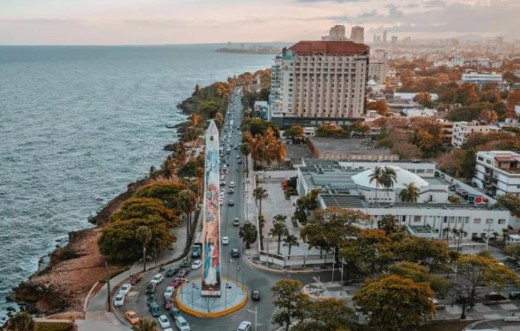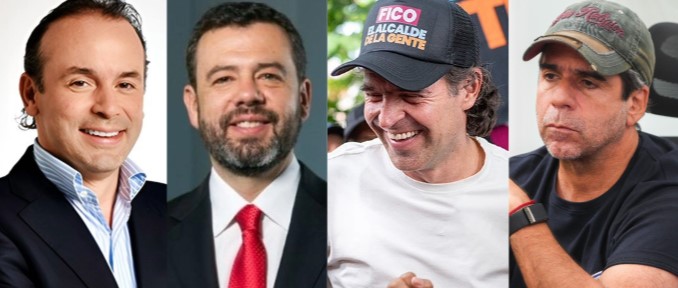

LatAm Corruption: Dominican Republic Leads Improvements
Brazil and Latin America overall worsen in corruption.
BY LATINVEX STAFF
The Dominican Republic led the way in reducing corruption in Latin America, according to the latest Corruption Perceptions Index from Germany-based watchdog Transparency International.
The Index scores 180 countries and territories around the world based on perceptions of public sector corruption, using data from 13 external sources, including the World Bank, World Economic Forum, private risk and consulting companies, think tanks and others. The scores reflect the views of experts and business people, not the public.
The Dominican Republic improved its score by three points and now ranks 8th in Latin America, up from 12 in 2022.
“The Dominican Republic…is the only country in the region that has made significant progress in the fight against corruption since 2021,” Transparency says. “In just a few years, the country has managed to strengthen the independence of the judiciary and the Public Prosecutor’s Office, allowing for progress in the investigation of cases of grand corruption without interference. Similarly, the country has professionalized the judiciary in recent years by strengthening transparency and advancing its digital transformation. The work of the media and civil society organizations in monitoring the justice system’s actions has been key in raising public awareness of the costs of corruption and demanding accountability.”
The change was spurred by a new government led by President Luis Abinader, who assumed office in August 2020 and in his inauguration granted de facto independence to the attorney general’s office in a break from tradition in the Caribbean country. The attorney general’s office in turn started a wave of unprecedented investigations of public corruption, especially under the government of Danilo Medina (2012-2020), which implicated his brother, two of his sisters, a brother-in-law, two of his security chiefs, his chief of staff and his attorney general, economy minister and public works minister.
| Latin America Corruption | ||||
| Ranked by transparency rank | ||||
| LA Rk | Gl Rk | Country | Score | Ch |
| 1 | 16 | Uruguay | 73 | -1 |
| 2 | 29 | Chile | 66 | -1 |
| 3 | 45 | Costa Rica | 55 | 1 |
| 4 | 76 | Cuba | 42 | -3 |
| 5 | 87 | Colombia | 40 | 1 |
| 6 | 98 | Argentina | 37 | -1 |
| 7 | 104 | Brazil | 36 | -2 |
| 8 | 108 | Panama | 35 | 1 |
| 8 | 108 | Dom. Rep. | 35 | 3 |
| 10 | 115 | Ecuador | 34 | -2 |
| 11 | 121 | Peru | 33 | -2 |
| 12 | 121 | El Salvador | 31 | -2 |
| 12 | 126 | Mexico | 31 | |
| 14 | 133 | Bolivia | 29 | -2 |
| 15 | 136 | Paraguay | 28 | |
| 16 | 154 | Guatemala | 23 | -1 |
| 16 | 154 | Honduras | 23 | -1 |
| 18 | 172 | Nicaragua | 17 | -2 |
| 19 | 177 | Venezuela | 13 | -1 |
| Average | 35.8 | -0.9 | ||
| LA Rk=Latin America rank | ||||
| Gl Rk=Global rank | ||||
| Ch: Change in score from 2022 index | ||||
| Sources: Transparency International, 2023 Corruption Perceptions Index; | ||||
| Latinvex (LatAm rank, changes) | ||||
The progress in the Dominican Republic stands in contrast to Latin America overall, which saw a decline in its average score for the third year in a row. A whopping 13 of 19 countries saw declines in their scores, including Brazil, the largest economy in Latin America.
Apart from the Dominican Republic, only three other countries saw improved scores: Colombia, Costa Rica and Panama.
BRAZIL
Commenting on Brazil, Transparency points to several negative trends.
“Lula’s controversial decision to appoint his former lawyer as a Supreme Court judge further raises concerns,” says Luciana Torchiaro, Regional Advisor for the Americas, Transparency International. “Additionally, the recent decision to invalidate all evidence from the Odebrecht leniency agreement, the world’s largest foreign bribery case, and to suspend JBS’s record-breaking fine, the world’s largest meatpacker, ensures impunity for numerous cases of grand corruption in Brazil and beyond.”
Cristiano Zanin, the former personal lawyer of Brazilian President Luiz Inácio Lula da Silva, took a seat on Brazil’s Supreme Court in August amid criticism that their relationship poses a conflict of interest, AP reported.
COLOMBIA’S NEW MAYORS
Although Colombia’s President Gustavo Petro still has another two and a half years left of his mandate, the South American country is seeing a significant political change after new mayors independent or critical of the leftist leader assumed office this month.
In Medellin, seen as Colombia’s main business hub, Federico Gutierrez – who ran for president in the first round in 2022 as the business favorite – is promising to improve the city’s management after four years under radical Daniel Quintero. Quintero managed, among other things, to significantly weaken governance at the public utility EPM, which went through three different CEOs over a four-year period. Quintero also attacked Medellin’s top businesses, accusing them of being “a kind of mafia.” Gutierrez has named John Maya Salazar as the new head of EPM. He previously worked as vice president at the company between 2016 and 2019 and was head of electricity company Ingenierías Aliadas.
In Cali, businessman Alejandro Eder is promising to improve security. He worked on peace-related matters during the governments of presidents Alvaro Uribe and Juan Manuel Santos. Eder, who studied at Columbia University, also headed up ProPacifico, a group promoting investments in Cali and nearby areas, for two years. His family owns sugar company Manuelita.
In capital Bogota, Carlos Fernando Galan has pledged to continue building the metro despite constant threats by Petro to change the design and cut off financial commitments. He served as Transparency Secretary during the government of Santos. Galan, who studied at Georgetown University, also worked for many years as a journalist for top newspaper El Tiempo and leading magazine Semana.
Meanwhile, in industrial city Barranquilla, Alejandro Char returns as mayor after serving in the job during two previous terms as well as governor of Atlantic state. Char, who studied at Georgia Institute Of Technology, has vowed to improve security and infrastructure and make Barranquilla a model for bilingualism in Latin America.
© Copyright Latinvex












